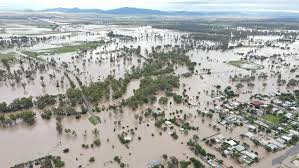
Breaking News
 Back to cash: life without money in your pocket is not the utopia Sweden hoped
Back to cash: life without money in your pocket is not the utopia Sweden hoped
 How people spent their time from 1930 - 2024
How people spent their time from 1930 - 2024
 Superwood is Here! This Amazing New Material Could Change The World!
Superwood is Here! This Amazing New Material Could Change The World!
 If only we'd built those offshore wind turbines, eaten more cricket-burgers...
If only we'd built those offshore wind turbines, eaten more cricket-burgers...
Top Tech News
 New AI data centers will use the same electricity as 2 million homes
New AI data centers will use the same electricity as 2 million homes
 Is All of This Self-Monitoring Making Us Paranoid?
Is All of This Self-Monitoring Making Us Paranoid?
 Cavorite X7 makes history with first fan-in-wing transition flight
Cavorite X7 makes history with first fan-in-wing transition flight
 Laser-powered fusion experiment more than doubles its power output
Laser-powered fusion experiment more than doubles its power output
 Watch: Jetson's One Aircraft Just Competed in the First eVTOL Race
Watch: Jetson's One Aircraft Just Competed in the First eVTOL Race
 Cab-less truck glider leaps autonomously between road and rail
Cab-less truck glider leaps autonomously between road and rail
 Can Tesla DOJO Chips Pass Nvidia GPUs?
Can Tesla DOJO Chips Pass Nvidia GPUs?
 Iron-fortified lumber could be a greener alternative to steel beams
Iron-fortified lumber could be a greener alternative to steel beams
 One man, 856 venom hits, and the path to a universal snakebite cure
One man, 856 venom hits, and the path to a universal snakebite cure
 Dr. McCullough reveals cancer-fighting drug Big Pharma hopes you never hear about…
Dr. McCullough reveals cancer-fighting drug Big Pharma hopes you never hear about…
If only we'd built those offshore wind turbines, eaten more cricket-burgers...

Major flooding has struck New South Wales with 50,000 people evacuated and three deaths. Even as one person is still missing, The Sydney Morning Herald and the Climate Council are already milking the disaster as a Witchdoctor Psy-Op for the Blob.
Our thoughts are with everyone in the major flood areas.
Shameless: The Climate Council is already exploiting floods in NSW as a climate scare
The Sydney Morning Herald reads the tea-leaves of climate seance
The intensifying climate driver behind the coastal deluges and inland drought
Caitlyn Fitzsimmons, The Sydney Morning Herald
Note the spooky tea-leaf reading in the second paragraph — pay attention to the psychological operation.
This dichotomy of drought and flooding rains is not new to Australia, but for it to occur simultaneously on opposite sides of the Great Dividing Range is a phenomenon that scientists say is likely to increase with climate change.
Firstly they say the obvious, lulling the reader into thinking they are sensible — then there's the "but" — followed by a bizarrely trite, and largely unknowable tea-leaf pattern. It's that "simultaneous rain on opposite sides of the mountains", which turns out not to even be an actual observation of a cherry-picked 10-year-trend, but the vaporous emptiness of a "phenomenon" that someone predicts might happen. In other words, they have nothing at all, but they say it anyway in hushed significant tones, like tribal sorcerers have for thousands of years.
They all wheel out the line that climate change increases humidity — the same line they promptly forget the minute there is a drought or a fire:
"Climate change is increasing the amount of moisture the atmosphere can hold by about 7 percentage points of humidity for every degree of warming."
If humidity doesn't prevent a single drought how do we know it causes any floods? They never mention that.
Then, buried under 21 paragraphs of fortune-telling-sages winding up the audience, they find one semi-honest scientist who says it's impossible to say it was climate change:
Dr Chiara Holgate in the ARC Centre of Excellence for Weather of the 21st Century at the Australian National University, said Australia had a highly variable climate, and without an attribution analysis, it was impossible to say that climate change was the cause of any particular drought or floods.
A very honest scientist would also mention that rampant flooding has happened many times before, like in the 1820s, in 1857, 1866, 1893, 1949 and 1955 and CO2 had nothing to do with any of them. And a half decent cub scout reporter would ask these obvious questions. Where are they? We should do up charity rescue package for SMH readers.
Indeed, the not-so-great journalist could have just googled, I've written this all up before. In 1857 floods were so bad one boat was washed out to sea and the people on board spent ten days trying to get back, surviving on biscuits. The beaches were piled high with furniture, goats, pigs, melons and "five years of wood". Then the Manning River flooded again in 1866, this time rising so fast overnight people went to sleep not realizing they were in danger and the losses were terrible because they had no time to prepare. There are heart-wrenching stories.



